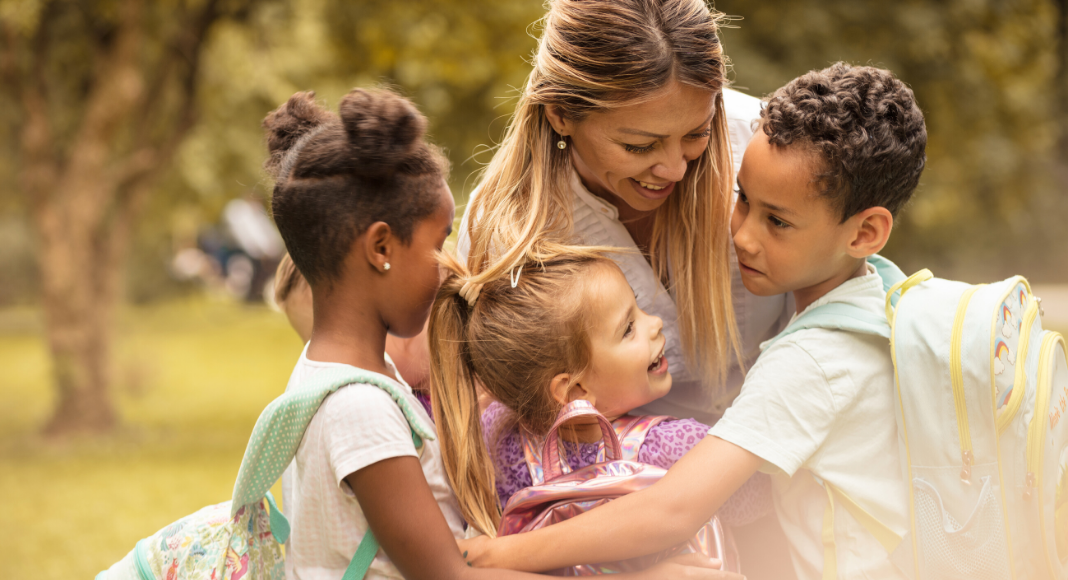 We all have some reason to be grateful. Yet how do we become people of gratitude and how important is it that our children learn to feel grateful?
We all have some reason to be grateful. Yet how do we become people of gratitude and how important is it that our children learn to feel grateful?
Research at the Greater Good Science Center at University of California – Berkeley found, “People who practice gratitude feel considerably happier (25%) than those in a control group; they are more joyful, enthusiastic, interested, and determined.”
Making a habit of gratitude can feel good and also be good for us. Like other positive emotions, feeling grateful on a regular basis can have a big effect on our lives. Brain research shows that positive emotions are good for our bodies, minds, and brains.
How can we teach this life skill? Lots of people have suggestions. Some of my favorites are:
Make gratitude part of bedtime. When you tuck him in at night, ask your child to tell you three things he’s grateful for. Even if he’s had a bad day it will help him—and you—end each day on a positive note.
Give kids credit. Be mindful of the fact that your child may have his or her own way of expressing gratitude, even if it doesn’t fit your expectations. Different kids communicate in different ways. For example, your child may be more comfortable giving a hug than a verbal thank you, or might show her appreciation by helping out around the house or drawing you a picture. Tuning in to your child’s unique way of being thankful will let her know that even as she’s learning new ways to give back, you see and appreciate the thoughtful person she already is.
Encourage them to accumulate growth, not gadgets. Materialistic goals, when met, rarely lead to genuine gratitude (unless, perhaps, the goal was met through a generous gift from someone else–in which case, the child should be encouraged to express thanks). When you encourage a child to focus on developing deeper connections with people or the community and on pursuing experiences that pique their interest and help them achieve growth, it’s much more likely to foster gratitude.
Help them find what matters to them. When kids find something that’s important to them, something bigger than themselves, (like a social issue, cause, or form of service), they realize they’re a player in something more important. Gratitude comes from an appreciation of that larger picture and what they can do to affect it.
Find something positive in frustrating situations and discuss it.
Create a family gratitude list. Post it on the fridge. Add to it when necessary.
Take gratitude walks. While you walk, look for the simple pleasures in the day, such as the warm sun or the birds singing and express appreciation for them. Use this time to ask your kids what they are grateful for.
Ask why. As your child gets better at expressing gratitude, dig deeper. Ask why he is grateful for something and how it affects his day.
Work through envy. Help your child work through any feelings of jealousy he or she may have. Envy can come when we are not feeling thankful for what we have and are focusing instead on what others have.
Looking for more ways to increase gratitude? Check out these resources:
- How to Teach Children to Be Grateful (7-Day Gratitude Challenge)
- 10 Tips for Raising Grateful Kids
- Want Your Child to Be More Grateful? Science Says Do These 7 Things
How do you develop gratitude in your children? What strategies have worked well in your family?
 Dr. Kathie Williams is the Director of Public Health EdVenture. During more than 30 years of public health experience, Kathie Williams has worked in Africa and the U.S. in health care delivery, maternal and child health education, nursing education, development of health literacy materials, and accessing health care for refugees resettled in the United States. Dr. Williams holds a B.S. in Nursing from Duke University, M.P.H. in public health nursing from the University of North Carolina at Chapel Hill and a DrPH in Health Promotion Education and Behavior from the Norman J. Arnold School of Public Health at USC-Columbia. After joining EdVenture in 2007, Kathie worked to expand health programming at EdVenture to include greater community collaboration, opened the BioInvestigations Lab as part of a National Institutes of Health grant and opened the Taste Buds Nutrition Lab.
Dr. Kathie Williams is the Director of Public Health EdVenture. During more than 30 years of public health experience, Kathie Williams has worked in Africa and the U.S. in health care delivery, maternal and child health education, nursing education, development of health literacy materials, and accessing health care for refugees resettled in the United States. Dr. Williams holds a B.S. in Nursing from Duke University, M.P.H. in public health nursing from the University of North Carolina at Chapel Hill and a DrPH in Health Promotion Education and Behavior from the Norman J. Arnold School of Public Health at USC-Columbia. After joining EdVenture in 2007, Kathie worked to expand health programming at EdVenture to include greater community collaboration, opened the BioInvestigations Lab as part of a National Institutes of Health grant and opened the Taste Buds Nutrition Lab.














